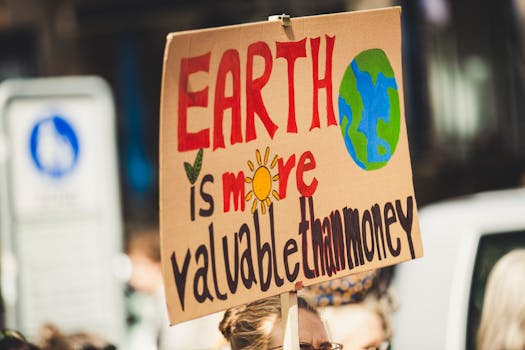
Introduction

The impact of climate change on global ecosystems is profound and multifaceted. As our planet warms, various ecosystems are experiencing dramatic shifts, threatening biodiversity and the balance of natural habitats. Understanding these changes is crucial for developing effective conservation strategies.
Effects on Terrestrial Ecosystems

Terrestrial ecosystems, such as forests, grasslands, and deserts, are particularly vulnerable to climate change. Rising temperatures and altered precipitation patterns lead to shifts in species distributions. Many species are migrating towards cooler areas, often resulting in habitat loss and increased competition among species.
Additionally, extreme weather events, such as droughts and wildfires, have become more frequent. These events disrupt the delicate balance of terrestrial ecosystems, leading to reduced plant and animal populations. For instance, tree mortality rates in forests have surged due to prolonged droughts, which in turn affects the entire ecosystem.
Impact on Aquatic Ecosystems

Aquatic ecosystems, including oceans, rivers, and lakes, are also feeling the effects of climate change. Rising sea temperatures lead to coral bleaching, a phenomenon that devastates coral reefs and the diverse marine life they support. Additionally, ocean acidification, caused by increased carbon dioxide levels, poses a serious threat to shellfish and other marine organisms.
Freshwater ecosystems are experiencing altered flow patterns and temperatures, which affect fish populations and aquatic plants. Changes in water temperature can disrupt breeding cycles and lead to declines in fish species, impacting food webs and local fisheries.
Biodiversity Loss

The consequences of climate change extend to biodiversity loss, as many species struggle to adapt to rapidly changing environments. According to the Intergovernmental Panel on Climate Change (IPCC), a significant number of species are at risk of extinction if global temperatures continue to rise. This loss of biodiversity can destabilize ecosystems, leading to further environmental degradation.
Conservation efforts are critical in mitigating these impacts. Protecting habitats, restoring ecosystems, and implementing sustainable practices are essential steps toward preserving biodiversity in the face of climate change.
Conclusion

In conclusion, the impact of climate change on global ecosystems is a pressing challenge that requires immediate attention. From terrestrial to aquatic ecosystems, the changes we are witnessing are alarming and have far-reaching consequences. By understanding these impacts, we can work towards implementing effective strategies to protect our planet’s vital ecosystems and ensure a sustainable future for all living organisms.



